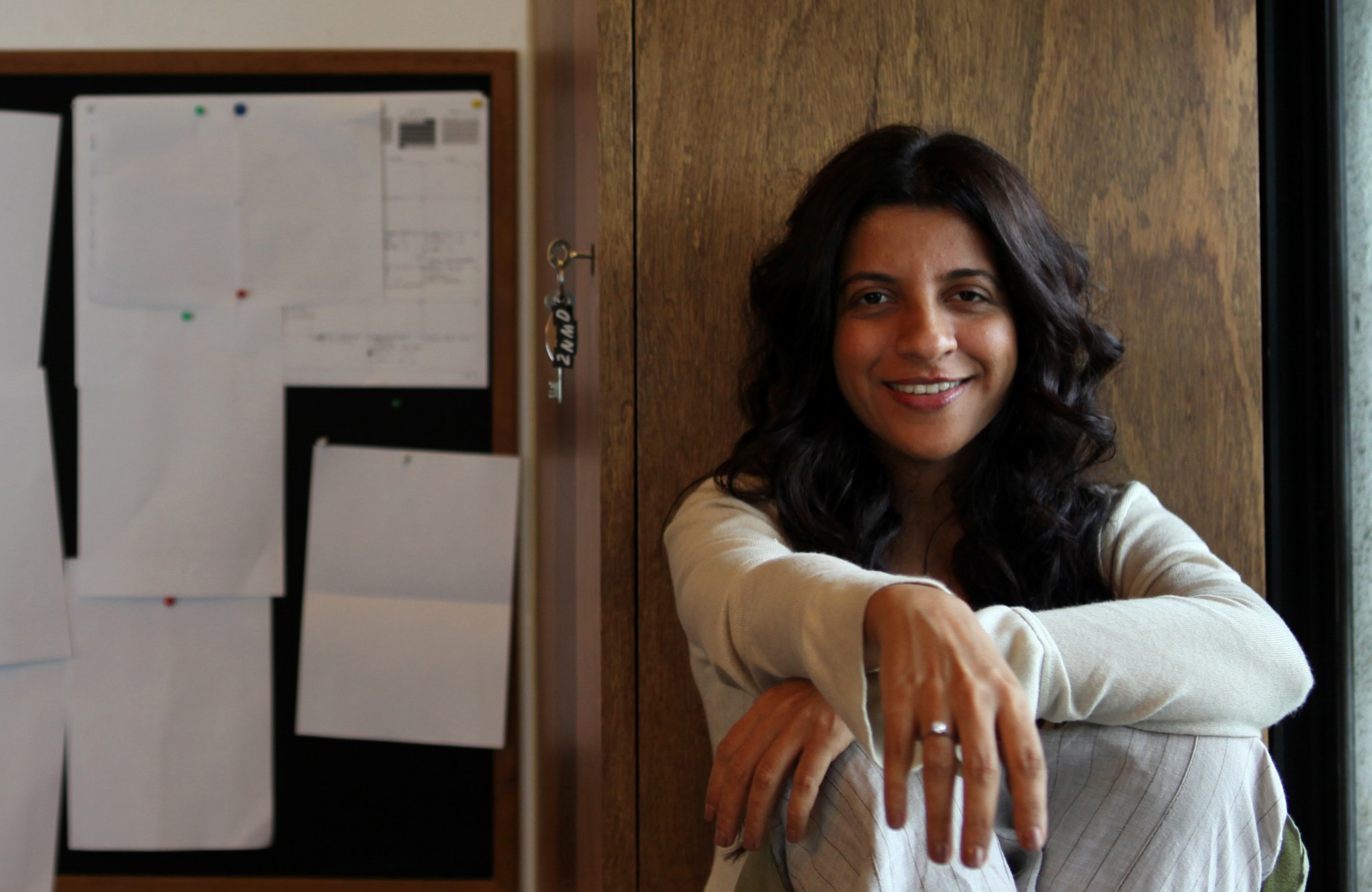
- Interviews
Zoya Akhtar: ‘I am a hybrid of commercial and independent cinema’
Zoya Akhtar has made a name for herself in mainstream Bollywood, She is the only female director to have a string of very successful movies, and now the stars that turned her down in her early career would gladly work for her. Her latest film Gully Boy is India’s entry in the Oscar race as well as being submitted to be considered for the Golden Globe Awards.
What motivated you to do Gully Boy?
I came across a video on YouTube with Naezy, a 21-year old Muslim boy from Mumbai’s ghetto, Dharavi, rapping about his life. I hadn’t seen or heard anything like it coming out of India. Here he was right in my backyard. A powerful marginalized voice not represented in the mainstream. Plus, Naezy’s writing style and vocal flow were amazing. I started to interview him – I didn’t know where it would lead but I felt compelled to follow it through. At one of his gigs, I met another young rapper called Divine, a Christian boy from the slums. An amazing artist, too. I knew theirs was a story that had to be told. They had a voice and they were raising it, I just felt I had to amplify that.
What was your reaction when you heard that Gully Boy was India’s entry for the Oscars?
I was at getting my hair cut when I got a text message from the head of the selection jury, Aparna Sen, congratulating me. I stared at the message for a few minutes to make sure I hadn’t misread it. Gully Boy was India’s official entry! I couldn’t really jump given the setting, but I turned to my friend who was sitting near me and showed her the message. We smiled the broadest smile you could see in all India! I’m so grateful because this film has been a real journey and I am thrilled for my crew, cast and every young musician that made it happen.
You are one of India’s most successful female writers, directors. Talk about your Journey.
My first film Luck By Chance was released a decade ago. It was an uphill struggle getting the film made. It took me 7 years. No male actor wanted to sign up for it. Then a popular actor said yes, we started prep, were well on our way, till I read his interview in the papers saying he had left the film. He hadn’t even bothered to inform me. The film came to a crashing halt and I had to figure out what to do next. It takes a while to mentally get around things like that. I wrote another film in the meantime, thinking it may be an easier story to tell but it met with the same reaction. Eventually, my brother (who is both actor and director) ended up playing the lead in Luck by Chance. Before the film released, people said he had ghost directed it. A leading film journalist even wrote how I am riding on my brother’s coattails. That would never have happened to a man. You just have to ignore such comments and keep doing what you do. Once the film was released, things improved.
In a male-dominated industry, what are the struggles that face female directors?
It was being taken seriously. My family is from the film industry. Both my parents have been successful writers, my brother was already directing so I think I had it easier than most other women. The industry was a big boys’ club and breaking in was tough. The important female directors initially used big male stars to get their films made. So, you carried on working until someone trusted you and said yes to back your project. It’s hard getting women’s stories told. You may get green-lit but you will not get scale. Budgets will be tight. Having said that, it’s much better now. Today it’s easier because quite a few women have made their mark at the Indian box-office.
You have your feet planted in both commercial and so-called independent cinema, is there a market for the independent cinema in India and abroad?
I think I am a hybrid of commercial and independent cinema. I grew up steeped in Bollywood, but my parents watched everything from all over the world and that’s what I was exposed to. In the US, the term “independent film” applies to films funded outside the studio system. In India, if your subjects are outside the regular narrative, or outside the star system, you’re considered an independent filmmaker. The market for indies is increasing in India. The stories are changing, the palette is evolving and the lines between commercial and independent vision is blurring. In the last decade, there has been an infusion of new blood. Writers, directors, actors, producers are pushing the envelope. It’s a very exciting time.
Talk about your vision of cinema in India, in what direction do you see it headed?
We’re a country of a billion-plus people, so logically whatever you put out will find an audience, small or big. This was tougher earlier because of the limited distribution we had. With the screen count increasing, year after year, and the arrival in India of several streaming platforms, we’ve never been in a better place. This is the first time that money is chasing content and storytellers are able to get their projects made. The Indian film industry is most vibrant now and I believe that soon some of our films will find a larger global audience. Finally, a distribution pipeline is being set up. The game is about to change.

